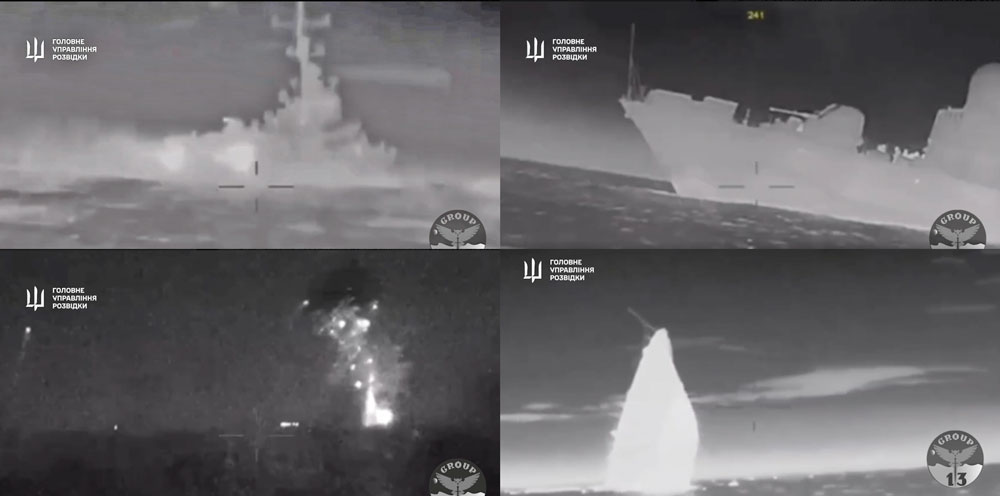The sinking of the Russian missile corvette Ivanovets by Ukrainian swarming robotic vehicles highlights the major vulnerability of Russian warships operating in the Black Sea, the UK Defense Ministry says in its latest intelligence update.
With Ukraine’s Navy virtually non-existent, Ukraine employs missiles and the newly-created fleet of various maritime suicide drones to counter Russia’s dominance in the Black Sea. These tactics led to the destruction or severe damage to at least 17 vessels of Russia’s Black Sea Fleet, including the sinking of the Moskva
, the Fleet’s flagship, early in the all-out war.
The British Defense Ministry wrote:
- On 1 February 2024, Ukraine's Main Directorate of Intelligence claimed it had sunk the TARANTUL-lll-class IVANOVETS, a Russian missile corvette. Open-source video footage from different angles shows multiple uncrewed surface vehicles using swarming tactics to successfully strike the ship, resulting in a large explosion, almost certainly resulting in the ship sinking.
- The IVANOVETS was patrolling Crimea's western coast in support of Russia's ongoing occupation of Ukraine. Its sophisticated 'Light Bulb' uplink allows it to send and receive targeting data to and from other ships, helicopters, and long-range patrol aircraft.
- This latest Ukrainian success highlights the continuing vulnerability of Russian warships operating in the Black Sea. It will highly likely have an impact on the Black Sea Fleet's command and control elements, probably forcing them to re-evaluate their manoeuvrability near western Crimea. However, the Russian Navy is almost certainly still able to conduct its three main tasks in the Black Sea: long-range strike, patrol and support.
Read also:
- Intel chief: Ukraine used six Magura V5 surface drones to sink Russia’s Ivanovets missile corvette
- Ukraine’s surface drones sink Russian Black Sea Fleet’s Ivanovets missile boat (video)

